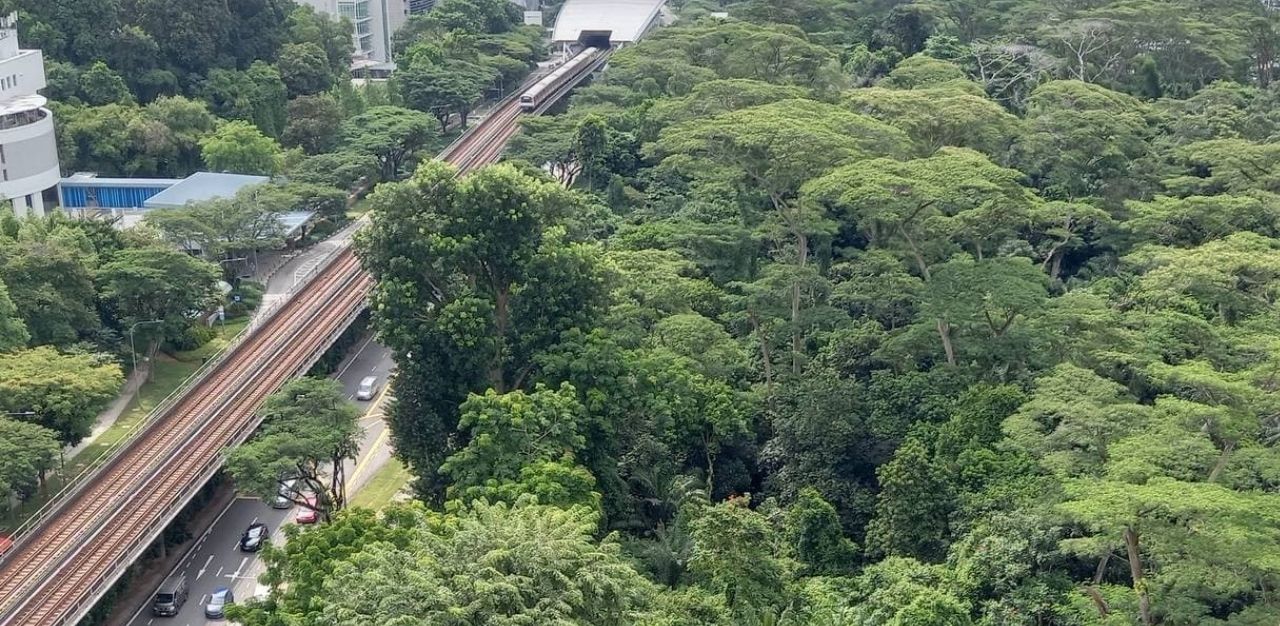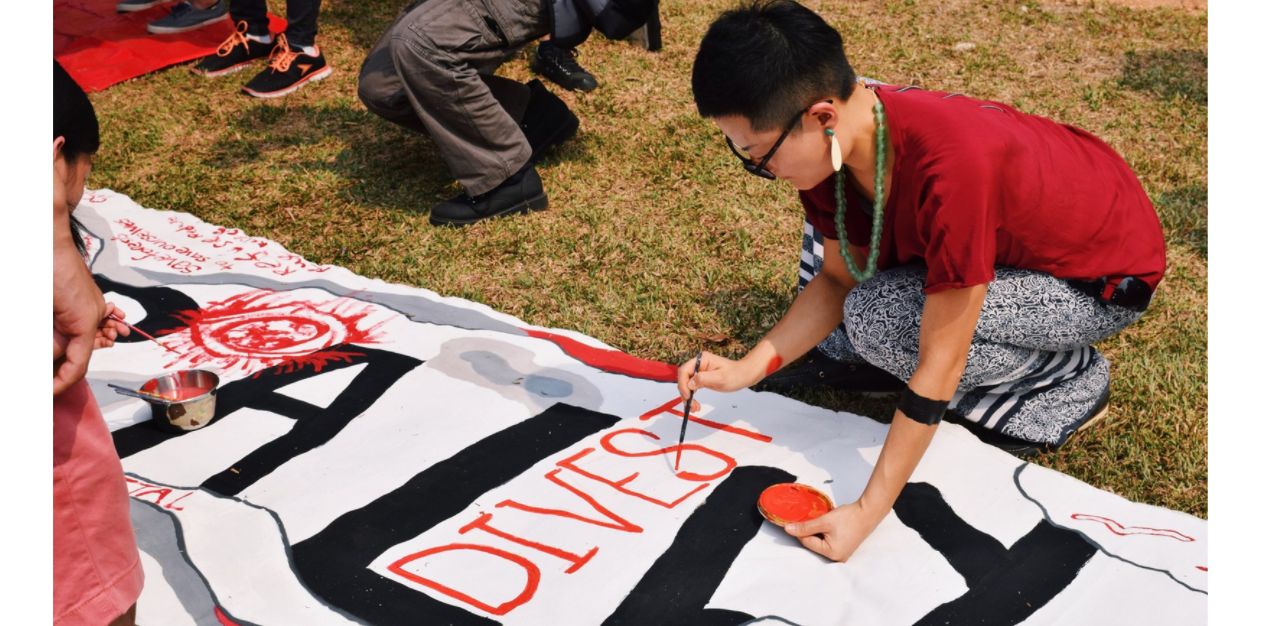On 5 November 2021 — the designated Youth Day at the 26th annual Conference of Parties (COP26) global climate summit — a coalition of youths in Singapore has put forth “an urgent call” for a more robust climate action from the nation’s leaders.
“Singapore aims to honour the values of justice and equality. This means that our approach to mitigating the climate crisis must logically be rooted in these same values,” says the group.
This push is supported by 93 individuals and 75 organisations and entities, including environmental and climate youth organisations across varied interests coming together to collaborate at a scale never before seen.
“It has been two years since Prime Minister Lee Hsien Loong first acknowledged that climate change is a ‘life and death’ issue. In those two years, however, the climate crisis and biodiversity loss have continued to exacerbate,” the group writes in a joint statement released to the media on 5 November.
The 45-page statement has 16 co-authors, including environmental communicator Woo Qiyun, better known as @theweirdandwild on Instagram, and Ho Xiang Tian, the slipper-wearing co-founder of LepakInSG, and speaker at Singapore’s first-ever climate rally in 2019.
It outlines key deficiencies in Singapore’s current climate policies, as well as concrete proposals on how to address these shortfalls. The statement also focuses on climate action across six key themes: carbon emissions, biodiversity, energy, corporate responsibility, community empowerment, and economy.
“This is a matter that affects all of us, especially our generation and the ones to come. It is only right then that we should be recognised as equal partners. We want to have a part in the choices Singapore ultimately makes,” the group says in the statement.
1. Peaking earlier and avoiding overreliance on carbon offsets
As announced by Senior Minister Teo Chee Hean during the Committee of Supply debate in Parliament in February 2020, the Singaporean government has pledged to reach peak emissions by 2030, and subsequently halved by 2050.
This has been identified by independent scientific analysis site, Climate Action Tracker as being “critically insufficient” and incongruent with the Paris Agreement target of limiting warming to 1.5 degrees celsius.
According to the Intergovernmental Panel on Climate Change’s (IPCC) climate science findings, global emissions need to reach net-zero — not just halve — by 2050 for this global target to be achieved. Hence, the group urges Singapore to peak five years earlier in 2025 to fall in line with this goal.
The youth group also found that emissions in the aviation and shipping industries are currently not included in Singapore’s emissions budget. These account for 23 per cent and 1.69 per cent of global emissions respectively.
So the group is pushing for “strong carbon abatement initiatives that do not rely on carbon offsets”, especially in these industries. If the need remains, only high-quality carbon offsets should be used — not to mention, budgeted and publicly disclosed, the statement says.
2. Stronger legislation to safeguard green and blue spaces
According to ValueChampion, a team of expert research analysts which helps consumers find the best financial products and services, Singapore is Asia-Pacific’s second greenest country as it has low water and air pollution levels and efficient energy and transportation systems.
Yet Singapore has lost up to 73 per cent of its plants and animals in the last two centuries, as cited by digital natural heritage archive, Wild Singapore. Despite this, the nation’s strongly enforced conservation laws deem it to be a biodiversity stronghold in the rapidly deforesting Southeast Asian region.
The group maintains the importance of protecting what remains of the island-state’s green and blue spaces, which “can simultaneously serve as nature-based climate solutions, sequestering carbon and protecting our coastlines from erosion”.
Currently, legislative loopholes have prevented Singapore’s marine spaces from being formally protected. These include Sisters’ Islands Marine Park and Sungei Buloh Nature Park Network.
Similarly, even though one-fifth of the island state is occupied by the green cover of the Nature Reserves and Nature Parks, 2,700 hectares of forested land is still potentially slated for urban development.
In line with global targets, the group pushes for the conservation of 30 per cent of the country’s blue spaces by 2030. This means that the ambiguities in Singapore’s law need to be eliminated so that overfishing, pollution, and illegal wildlife trafficking can be properly penalised within the nation’s borders.
Another key demand is greater transparency and accountability when developing Singapore’s remaining nature spaces — an issue that has been brought to the public’s attention since the recent Dover forest development controversy.

“Unlike the overwhelming majority of countries in the world, we are one of a handful of countries that do not have a law on mandatory Environmental Impact Assessments (EIAs), relying instead on policy administration discretion,” local environmental lawyer Joseph Chun told Eco-Business.
The group hence pushes for the EIA process to be more public to enhance accountability, such as making data accessible online to facilitate public participation and feedback. “This can be done through the creation of a public database as a one-stop portal,” it adds.
Additionally, the EIA process should be made more robust by international standards. This means being inclusive of less charismatic forms of biodiversity such as herpetofauna and marine line, as well as the voices of Singapore’s indigenous people.
3. Critically examining alternative energy sources
“We often take for granted that the innovative energy solutions will be more sustainable than the incumbent technologies,” highlights the group. Contrary to popular belief, the effectiveness of clean energy alternatives may vary due to the much more complex life cycles of these newer technologies.
For example, natural gas has been positioned as the least carbon-intensive fossil fuel, becoming the go-to pivot energy source for the nation’s decarbonisation efforts. Yet, methane from oil and gas extraction and transport still accounts for 10 percent of the global methane emissions, the group writes.
Similarly, Electric Vehicles (EVs) are hailed as the emission-light future of transport, but they still incur significant emissions from electricity consumption and from the production of the vehicles themselves. The group calls for a deeper paradigm shift towards public transport, bicycles, and shared mobility devices instead.
This lack of foolproof energy alternatives has demonstrated the need for environmental education and literacy in future generations. “Exposure to education on energy transition must always be done with deliberate efforts to encourage meaningful engagement amidst the bombardment of new ideas and solutions,” says the group.
4. Putting money where our climate commitments are
An International Monetary Fund (IMF) study revealed in October (2021) that the production and burning of coal, oil and gas were subsidised at the rate of $11 million every minute.
Without the commitment of large financial institutions, it is unlikely that the nation’s pledges can be truly realised. While the group acknowledges that major local banks have taken steps in the right direction, it deems current green financing efforts as “inadequate”.
Local banks DBS, OCBC and UOB have announced that they would divest from financing coal projects. DBS has also committed to net-zero by 2050. However, this has not been extended to other forms of fossil fuels, the group says.

A 2020 report by Rainforest Action Network revealed that about $US15 billion worth of revenue generated by DBS investments can be linked to supply chains that are highly damaging to the environment, including palm oil, timber, and beef.
“For financial institutions, their environmental footprint in their operations is relatively minor compared to the activities they finance,” the group highlights, pushing for Scope 3 emissions, which include investments, assets, travel, and all other indirect emissions, to be accounted for in these institutions’ commitments to net-zero.
5. Amplifying diverse voices and mainstreaming environmental education
As opposed to closed-door consultations, which are often the current default practice, the group advocates for the government to be “more inclusive in hearing the views of a diverse range of Singaporeans, and veer away from valuing only certain voices”.
This could mean reopening the Speakers’ Corner whilst adhering to current social distancing regulations, just as other commercial events are resuming. Events held at The Speakers’ Corner were critical in reflecting rising environmental rallies, such as the SG Climate Rally (2019) and Cross Island Line (2014).
More fundamentally, the group says that environmental education “must no longer be ‘an addendum to the core curriculum”, instead, a “central theme for our students, who are grouping up in our current planetary emergency”.
The syllabus should be “hands-on, experiential and inquiry-based — not to mention, locally contextualised so that students will be able to be personally invested and critically engaged”.
Lastly, the group calls for a reformed understanding of sustainability. “Sustainability is understood in a limited and narrow sense, and certain sustainability projects and groups are highlighted, supported, and recognised, whilst others less so,” it says.
With around 150 million indigenous people facing climate-related challenges in Southeast Asia alone, the group hopes to see more efforts being taken to draw from the wisdom of these communities, especially in the agricultural and natural resource sectors.
“We can empower and recognise indigenous voices by [honouring] oral histories, including their narratives in formal education, including [them] in consultations, and supporting the preservation of [their] cultures,” it adds.
6. Acknowledging responsibility, social costs and damages
One of the primary tools of climate policy used by the government is carbon taxes. In Singapore, the price has been set at $5 per ton, with Finance Minister Lawrence Wong stating that a higher price even beyond the originally slated $10 to $15 level will be announced at the 2022 budget.
The group calls for the government to “set it at a sufficiently ambitious level […], closer to the social cost of carbon”, as stated by the recommendation of the High Commission on Carbon Prices that carbon taxes be priced at between US$50 and -US$100 per ton, and supported by the World Bank.
At the same time, climate policies do not only encompass carbon prices. One key instance highlighted by the group is protecting workers against unfair severance packages or sudden redundancies. Without intervention, the group warns that this will be greatly apparent in, say, the petrochemical industry — a sunset industry that will be undeniably affected in the quest for a clean energy transition.
Finally, the group pushes for Singapore to take direct responsibility for its socio-environmental culpabilities.
“Singapore is the leading single-use plastic waste polluter per capita worldwide, and corporations based in Singapore have been accused of causing transboundary haze, investing in coal plants across Southeast Asia, and even making land investments in Africa that devastate local livelihoods,” it says.
Following through with taking responsibility, the group advocates for the nation’s leaders to “have open, national conversations about accepting climate refugees from countries we have directly or indirectly wrought the most damage to”.
Read the full statement at tinyurl.com/sgyouthcop26 and express your support here.
Join the conversations on TheHomeGround Asia’s Facebook and Instagram, and get the latest updates via Telegram.












